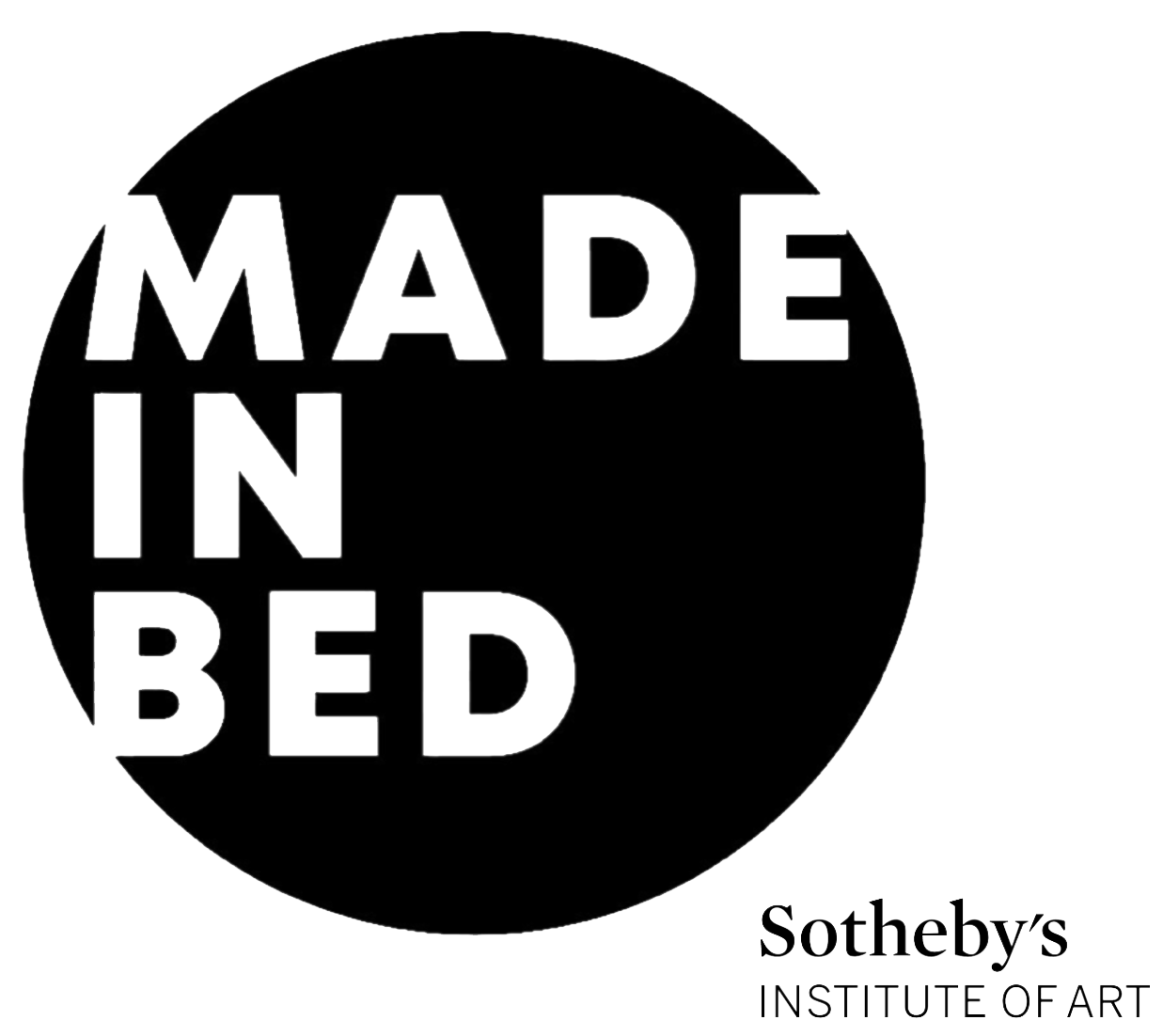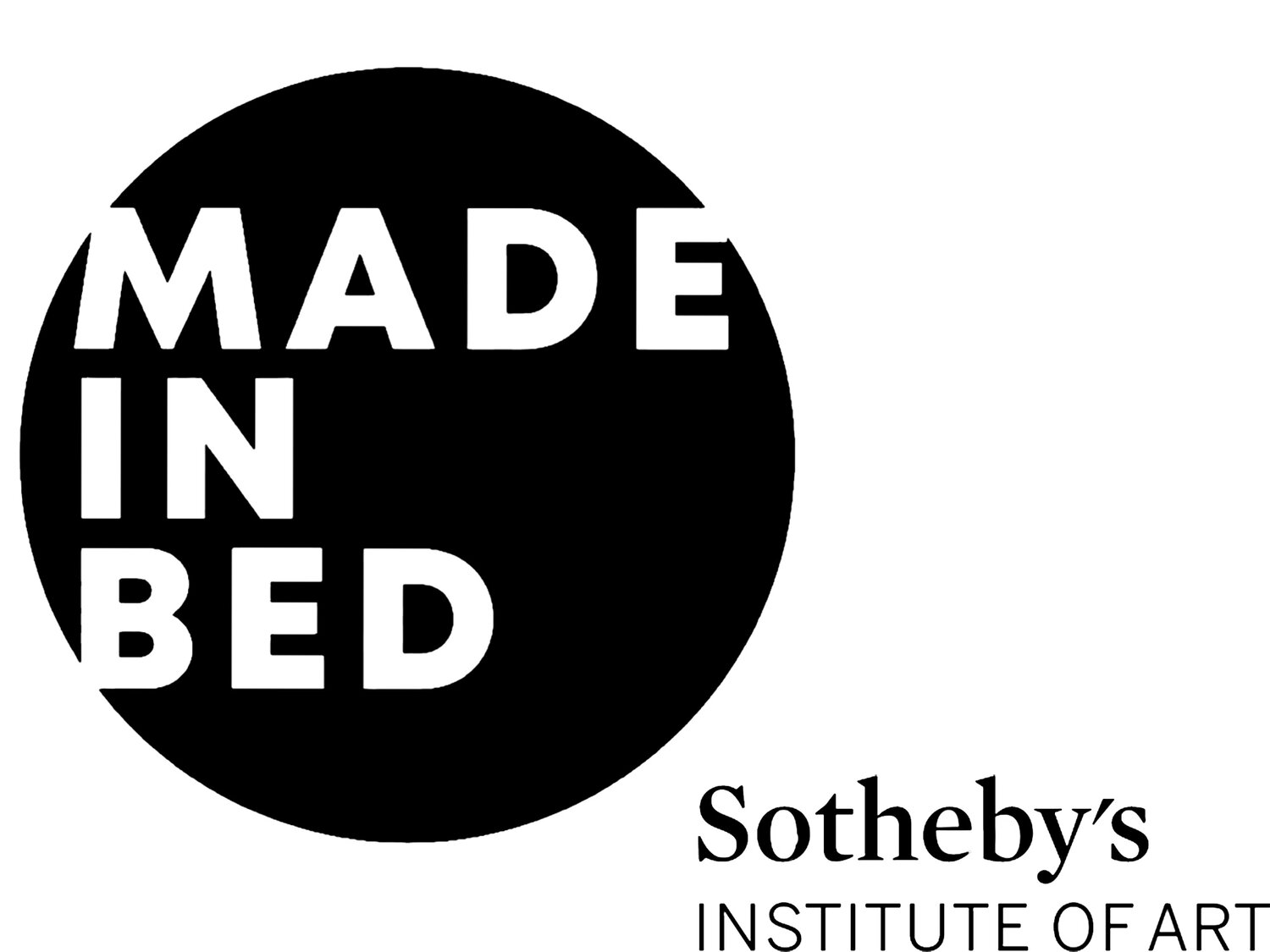Runqiu Peng in Conversation with Emerging Artist Yuxiao Ran
Yuxiao Ran is an emerging artist currently studying at the Royal College of Art, MA, Painting programme. Originally from Chengdu, China, Ran spent his high school years in Singapore and received his undergraduate degree in Baltimore, America. Currently living in London, Ran has transformed his international experiences into a highly imaginative art practice; through this, he creates irrational yet intriguing collages of images that can be recognised as his distinctive artistic style. Although he uses primarily figurative language in his practice, Ran establishes a surreal world in which people get puzzled and challenged. This confusion unveils the philosophical foundation in Ran’s painting: nothing is prohibited, and everything is permitted.
Ran sees art as a medium to reveal the truth of current society and communicate with contemporary people. With social and philosophical concerns in mind, Ran aims to capture the ripples of society with his paintbrush.
Yuxiao Ran.
Runqiu Peng: Your early artworks seem to have more political discussions. Why did you want to create that kind of work at the time?
Yuxiao Ran: To be honest, I didn't position them as political works because I didn't want to be a social activist. However, I like to explore the social impact of politics in my work. For my first art coursework in Singapore, the theme I chose was "The fear of woman". I didn’t understand that it might be a socially sensitive and political topic at that time. Instead, it was more relevant to the unexplored corners inside me, including my experience growing up with my mother and the relationship between the sexes in my family when I was a child.
In the current social context, it is difficult for me, as a male, to explore the role of women, which might touch some sensitive nerves. Without aiming to produce socially agitated art, this assignment has become a valuable artistic exploration for me as I looked into my inner self and examined my relationship with society through the medium of art.
The Intruder, 2015. Oil on Canvas, 100 x 200 cm. Singapore, Singapore.
RP: You went on to complete your undergraduate art studies in the United States. How did your experience there influence your artistic path?
YR: After I arrived in America, I stopped painting political themes because a natural transition occurred to me. Breaking away entirely from Asian society, I developed a more potent nostalgia for my homeland. This longing for my home led me naturally to paint domestic objects, capturing scenes from the city where I grew up. Once I had some physical distance from these places, I instead developed a more subtle emotional connection. Observing people’s lives in my home city from an outsider’s point of view made me feel close to them.
Game Room, 2019. Oil on canvas, 76.2 x 101.6 cm. Baltimore, U.S.
RP: Your previous work was more realistic - why do you find yourself moving towards the surreal realm nowadays?
YR: In fact, I consider my current works more “realistic” because they can better convey what I want to say. Realistic paintings mainly use figurative language, leaving the audience and myself little room for imagination. I’ve always been interested in surreal paintings, particularly René Magritte's work, which is very poetic, conceptual and philosophical, but “realistic” at the same time, using only figurative language. I want to piece together different physical representations of society to express ideas.
Another important consideration is that I want to strengthen my painting skills because I can’t always rely on photographs to paint. Wouldn't it be better if something only imagined in my head could still be drawn realistically?
I Am an Open Book, 2022. Oil, acrylic and pastel on calico, 90 x 135cm. London, UK.
RP: Although your artistic style is constantly changing, some elements seem to be ever-present. Red lines are reoccurring in your images, becoming your typical creative language. Can you tell us where the red line comes from?
YR: I had a clump of red threads in my studio when I was at Maryland Institute College of Art. During that time, I was practising visual illusion effects, depicting objects in such a realistic way as if they exist. One day I suddenly thought drawing those red threads on walls would be fun. I didn't think much about it at first, but after the effect was added, I was inspired by myself. The thread was pulled from a wall on one side, went through the whole environment and landed in another unknown space, wrapping around it. A thread can cross countless spaces on one plane while separating the upper spaces from the lower ones. The absurdity of this language was a surprise that I didn't expect. It is such a freedom to express myself using this red line that I want to keep doing it.
Story under a Blue Sky, 2022. Oil and acrylic on cardboard, 59 x 84 cm. London, UK.
RP: You have a copy of Tao Te Ching (a Chinese classic text for Taoism) hanging in your studio. What kind of influence does Taoism have on your artistic creation?
YR: I am intrigued by the philosophical truths revealed in the phrase from Tao Te Ching: "The Tao that can be stated is not the eternal Tao; The name that can be named is not the eternal name." If something can be described or explained, then it is not a thing that will last forever. Likewise, if an object can be painted on canvas, then it will also not be something that can exist eternally. This concept also exists in my creative approach, determining how I choose the things I paint. Is the painting referring to the object itself? Or is it, together with other things in that image, pointing to a more prolonged and permanent understanding? Through painting, I want to reveal my sense of truth and how I relate to the world.
This part of Taoist thinking is the foundation of my painting philosophies and a state of being that I wish to achieve and maintain - that is to say, nothing is prohibited, and everything is permitted. However, the problem is that, in my belief, one cannot paint nothingness by literally not painting anything. Nothingness is hardly revealed by the pure ‘absence’ in formalism; the ‘presence’ in formalism is the key to any philosophical revelation.
Yuxiao Ran in his studio, with a copy of Tao Te Ching on the back.
RP: How has this philosophy been translated into your painting practice, and how has it changed your work?
YR: With a Taoist approach to life, every second in life can be absorbed into my painting. When I immerse myself in the present moment, things come naturally into the picture. For example, the colour of the sky changes with the studio’s light, resulting in a unique shade in every piece of work. After one painting is done, it affects the next one and shapes how the image looks. In the end, I am creating a space of my own. My artworks can be described as physical representations of my intuition.
In my artistic practice, concepts and intuitions are not in conflict because they exist alongside each other. A specific concept is needed as a rational basis for my work, while instinct is more about how I depict things. The former is the theoretical basis, while the latter is the creating method.
The Kitchen in Yongchuan (Diptych), 2022. Oil and acrylic on calico and linen, 50.5 x 70.0 cm & 50.3 x 76.2 cm. London, UK.
RP: Philosophical reflection plays an important part in your art. Would you say that your art also serves to reveal the truth? What do you think is the function of your art?
YR: "The function of art" is a phrase not often mentioned anymore, and nowadays, most people think art doesn’t need to have a function in the first place. Instead, the function of art is generally understood as its practicality, and many people believe that art is only for art's sake.
But my attitude has always been that the starting point of art is based on its social significance. How does it reveal the reality of the present society? What does it speak? What does it reveal, and how does it communicate with contemporary people? Artworks should first relate to the current situation; then, it is possible to discuss its potential long-term meaning.
I am more interested in the impact of a phenomenon after it has occurred in society. To make an analogy, I’d like to compare politics to a tap; our society is a pond under the tap. I think all political phenomena are like drops of water from the tap. As I don't care about the drop itself, the ripples that occur when the drop falls into the pond are what I am interested in, and I want my paintbrush to capture those ripples.
Trash, 2022. Oil and acrylic on calico, 75 x 75 cm. London, UK.
All images are courtesy of the artist.
The interview was conducted in Chinese and later translated into English.
Thanks to Yuxiao Ran on behalf of MADE IN BED.
To learn more about Yuxiao Ran, follow him on Instagram.
Runqiu Peng
Interviews Co-Editor, MADE IN BED









